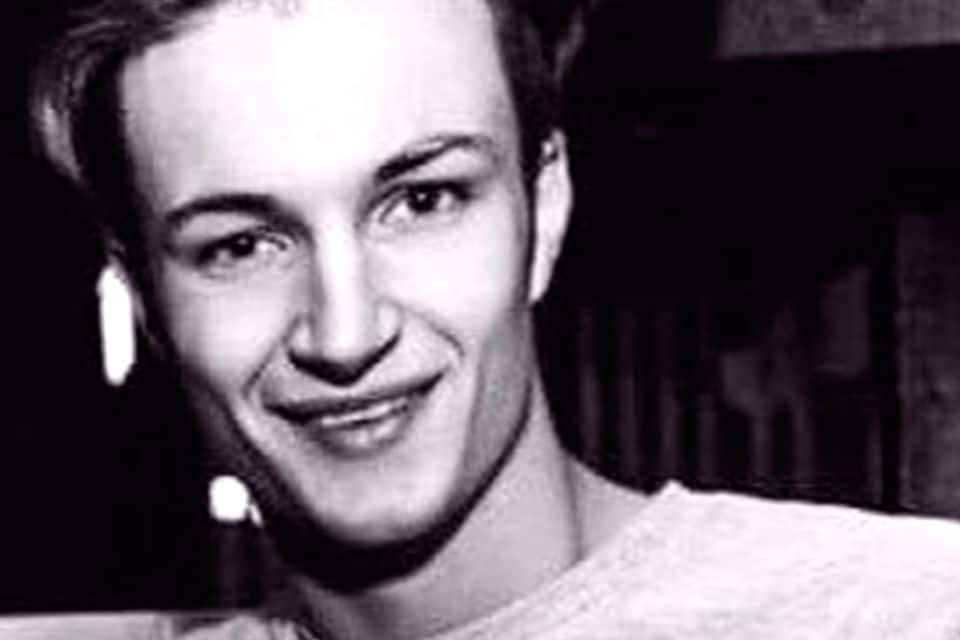
The prosecution today (Tuesday) concluded their evidence in the trial of three lifeguards accused of breaching their duty of care towards an “accomplished” Armagh swimmer who blacked out and tragically drowned during underwater training exercises.
On trial each facing a single count that being employee, they were in breach their duty to others on April 7, 2017 in that they “failed to take reasonable care for the health and safety of other persons who may be affected by your acts or omissions at work” are:
– Cathal Forrest-McVeigh (35), from Dunamony Road in Dungannon;
– William Holden (26), from Unshinagh Lane in Portadown; and
– James Monaghan (26), from Folly Lane in Armagh.
Having swam two and a half lengths of the pool underwater, Mr Rogers broke the surface and then, having tragically suffered a hypoxic blackout, sank to the bottom of the pool in Orchard Leisure Centre in Armagh where he remained for just over five minutes before he was pulled out.
The jury have heard that during the time Mr Rogers was submerged, the lifeguards were aware of him and had been observing him, that McVeigh and Monaghan were engaged in conversation for two minutes and twenty seconds and that before they attempted a rescue, McVeigh had banged on the steps with a pole and had asked another swimmer to check on him, that swimmer believing that he got a “thumbs up” gesture from the 20-year-old.
It is the Crown case that each of them breached their duty of care by waiting too long to initiate a rescue, that the prolonged changeover of pool duties distracted them and that they “missed the signs” that Mr Rogers was in danger.
The jury have also heard however, that during their training and induction, the lifeguards received no guidance about hypoxic blackouts or the signs to look for, about prolonged breath holding or the dangers of extensive underwater swimming.
As prosecuting KC Geraldine McCullough brought the PPS evidence to a conclusion, she read a number of agreed facts to the Newry Crown Court jury of three men and eight women.
There was agreement, she told the jury that:
– The Orchard Leisure centre took no disciplinary action against the defendants;
– Numerous and voluminous documents were seized by the PSNI ands HSENI during the investigation;
– There was full co-operation by the leisure centre as well as Armagh, Banbridge and Craigavon District Council;
– As a result of the incident, ABC council brought in measures to limit under water swimming and breath holding;
– Assistant state pathologist Chris Johnston performed a post mortem and opined that the cause of death was cerebral hypoxia due to drowning due to a collapse associated with underwater breath holding;
– It was his view, the jury heard, that when Mr Rogers broke the surface he suffered the hypoxic black out and sank to the bottom of the pool unconscious;
– When he was at the bottom of the pool for the five minutes and nine seconds, his body was exhibiting signs of decrerabric and decorticate posturing where his limbs moved involuntarily
– Mr Johnston also opined that Mr Rogers did not give a thumbs up sign to a fellow swimmer but rather his movement was in keeping with the seizures he was suffering in the decrerabric and decorticate posturing as his brain was starved of oxygen.
The jury have already heard that during their police interviews, all three defendants told investigators they were aware of Mr Rogers and of what the 20-year-old was doing.
McVeigh said he could see Mr Rogers on the bottom of the pool and he “seemed to be conscious and he was moving – sitting up and lying down.”
He said that a member of the public checked Mr Rogers and “after this myself and other staff still had no concerns – we believed him to be holding his breath as previous.”
Holden had been on duty in the high chair and he told police and HSE that when his colleague came on duty to relieve him, even though he knew Mr Rogers’ usual swimming and training habits “I wanted him to come up from the bottom”.
“At that point there was no real concern – I just wanted him up from the bottom of the pool because obviously, there was a switch over,” Holden said, adding that “I didn’t really think there was anything wrong but when he was pulled up out of the water I ran over and hit the alarm.”
He told investigators that although he could not remember whether his training had addressed or included hypoxic training, “it was definitely addressed after the incident” with advice posters put up in leisure centres and “a rule that you are not allowed to do more than 20 meters underwater.”
Mr Rogers “wasn’t a stranger to the pool” Holden said during his recorded interviews and he told the investigators “if it had been somebody else, we would have taken action straight away…definitely.”
Monaghan gave a similar account where he told investigators “it wasn’t like a random person in the pool – we knew of him and we knew that he done the type of training that he did…we were just keeping a watch.”
“At no point did I think that it was not OK,” Monaghan said in his interviews, explaining that “if it was any other swimmer on the bottom of the pool for say like 30 seconds, we would get in and get him out.”
“If it was someone diving in the shallow end and I watched them do it and didn’t say anything and they did it again and hurt their spine, then I’m in breach of my duty of care but I didn’t know to tell him,” Monaghan said.
At the end of the Crown case today trial Judge Paul Ramsey KC told the jury he had legal issues to deal with so he sent them home for the day but he outlined the case is now likely to go into next week.
The trial continues.



